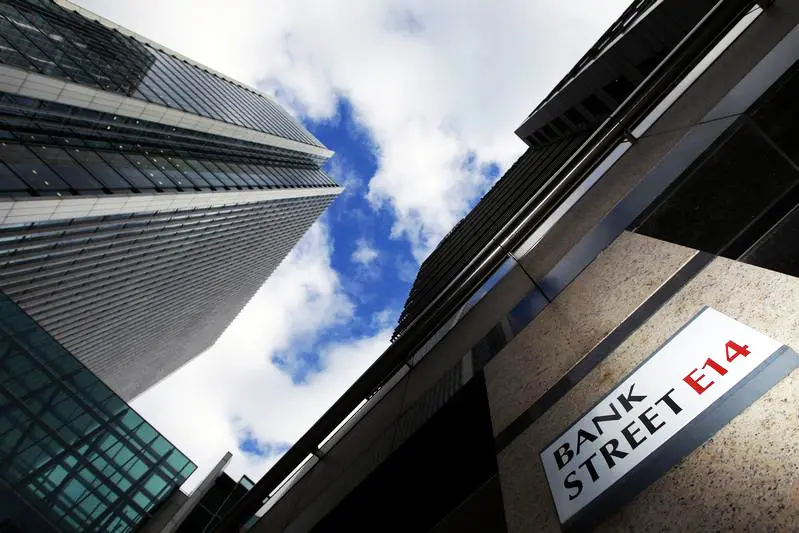PHOTO
Gulf banks are forecast to continue cutting costs and staff numbers as they adjust to tougher economic conditions, according to a report released on Tuesday by consultancy firm KPMG.
Emirates NBD, Dubai's largest bank, announced this month it was planning to lay off 300 staff across two of its subsidiaries in a bid to cover costs, despite announcing first-quarter net profit had risen 8 percent year-on-year to 1.81 billion dirhams ($492.8 million).
Local lenders the National Bank of Ras Al Khaimah and First Gulf bank announced job cuts recently, while global players, such as HSBC, Standard Chartered and Barclays, have reduced staff at their UAE operations. A study by consultancy firm KPMG has predicted such cost cutting measures will continue throughout 2016 and 2017.
KPMG this week released its first report analysing the published financial statements of 56 listed commercial banks across Bahrain, Kuwait, Oman, Qatar, Saudi Arabia and the UAE, which represent about 90 percent of the assets of listed lenders in the Gulf.
The study found that while profitability rose 6.8 percent last year, and asset values rose 6.3 percent, the impact of margin compression, an increase in the cost of funds and greater competition for assets saw banks looking to rein in expenditure.
Jalil Al Aali, head of financial services in KPMG Bahrain said in a press statement he has observed "an increase in banks looking to acquire consultancy services on cost-reduction, operational efficiency, digitalisation and other ways to improve profitability."
Rising cost of doing business
The report found that while banks in general across the region saw banks' cost-to-income ratios drop by around 7.4 percent, costs rose marginally in Saudi Arabia and the UAE.
"The cost of doing business rose during 2015 as banks looked to invest. Seven banks analysed have reported single-digit increases in their CIRs [cost-to-income ratios] in 2015," the report said."In the second half of 2015, a number of local and international banks laid off staff to keep costs at manageable levels," it added.
Omar Mahmood, KPMG's regional head of financial services, told Zawya in a phone interview the cost cutting is likely to focus on more than just cutting the headcount. "It is not just about letting people go or cutting travel spending... These waves the banks have already been through but you will certainly see banks focused on costs in 2016 and 2017 as market conditions remain the same and banks' incomes come under pressure.
"You will see them focusing more on sophisticated cost cutting, such as market strategies, outsourcing, digital channels and areas which are harder to do than just cutting jobs," he added.
Earlier this month, a report released by a Dubai-based recruitment agency found UAE companies are reducing their long-term staff count and replacing them with short-term consultants, with banking one of the key sectors where cost cutting is taking place.
"Consultants and consultancy firms are being used more across the board. The big four [PricewaterhouseCoopers (PwC), Deloitte, Ernst & Young (EY) and KPMG] and management consultancy firms are definitely busier," Trefor Murphy, managing director for the Middle East and North Africa at recruitment firm Morgan McKinley said in a press statement.
"There are situations where firms are letting people go and at the same time kicking off consultancy projects as skills requirements change."
Consultants on the rise
The UAE Employment Monitor for Q1 2016, based on Morgan McKinley's internal data, reported that reduced hiring levels by banks and financial service firms, coupled with an influx of redundancies in the oil and gas sector has resulted in an increased number of jobseekers competing for a shrinking pool of new vacancies.
The monitor reported a decrease in recruitment activity, with the number of job vacancies on the firm's books in the UAE falling to 7,212 in Q1, a 9 percent decrease compared to the 7,899 on offer in Q4 2015. The decline was even steeper on a year-on-year basis, down 12 percent compared to the first quarter in 2015.
The cost cutting and slashing of jobs comes as the International Monetary Fund (IMF) on Monday revised the growth outlook for the UAE, with overall real gross domestic product growth moderating to 2.4 percent in 2016, compared to 3.9 percent in 2015.
© Zawya 2016





















